JOIN TODAY!
Meet new people from all over the world, make friends, change your status, upload photos, earn points, & so much more! Chat, post comments or questions on our forum, or send private emails to your friends! There is so much to do and Learn here at World's Last Chance! Join our growing Christian Community Today and receive your Free Gift!
eCourses Completion Status
Daniel Chapter 11: The ''Willful King''
“And the king shall do according to his will; and he shall exalt himself, and magnify himself above every god, and shall speak marvellous things against the God of gods, and shall prosper till the indignation be accomplished: for that that is determined shall be done.
“Neither shall he regard the God of his fathers, nor the desire of women, nor regard any god: for he shall magnify himself above all.
“But in his estate shall he honour the God of forces: and a god whom his fathers knew not shall he honour with gold, and silver, and with precious stones, and pleasant things.
“Thus shall he do in the most strong holds with a strange god, whom he shall acknowledge and increase with glory: and he shall cause them to rule over many, and shall divide the land for gain.
“And at the time of the end shall the king of the south push at him [the Willful King described in the preceding verses]: and the king of the north shall come against him [the Willful King] like a whirlwind, with chariots, and with horsemen, and with many ships; and he [the King of the North] shall enter into the countries, and shall overflow and pass over.” (Daniel 11:36-40, KJV)
Daniel 11 is filled with descriptions of a long-running antagonism between someone or something referred to as the King of the North, and another entity called the King of the South. Many Bible students have assumed that these are the only two warring factions spoken of in the chapter.
Careful study of the entire chapter, however, reveals a third party. To keep the various players straight, we shall refer to this third opponent as the “Willful King.” The identifying hallmarks listed by Daniel reveal the Willful King to be revolutionary France before and under the rule of Napoleon Bonaparte.
DANIEL 11:36
“And the king shall do according to his will; and he shall exalt himself, and magnify himself above every god, and shall speak marvellous things against the God of gods, and shall prosper till the indignation be accomplished: for that that is determined shall be done.”
ACCORDING TO HIS WILL
The phrase claiming the king shall “do according to his will” is used three times in Daniel 11. The first use is found in verse 3: “And a mighty king shall stand up, that shall rule with great dominion, and do according to his will.” This refers to Alexander the Great. The second time it is used is in verse 16 to refer to Julius Caesar: “But he that cometh against him shall do according to his own will, and none shall stand before him: and he shall stand in the glorious land, which by his hand shall be consumed.”
Both Alexander the Great and Julius Caesar were conquering political powers. They both exerted dominance over opposing political powers. To be consistent, when the Willful King acts “according to his will” he must, likewise, be a dominant power that changed the political landscape. This is precisely what France did.
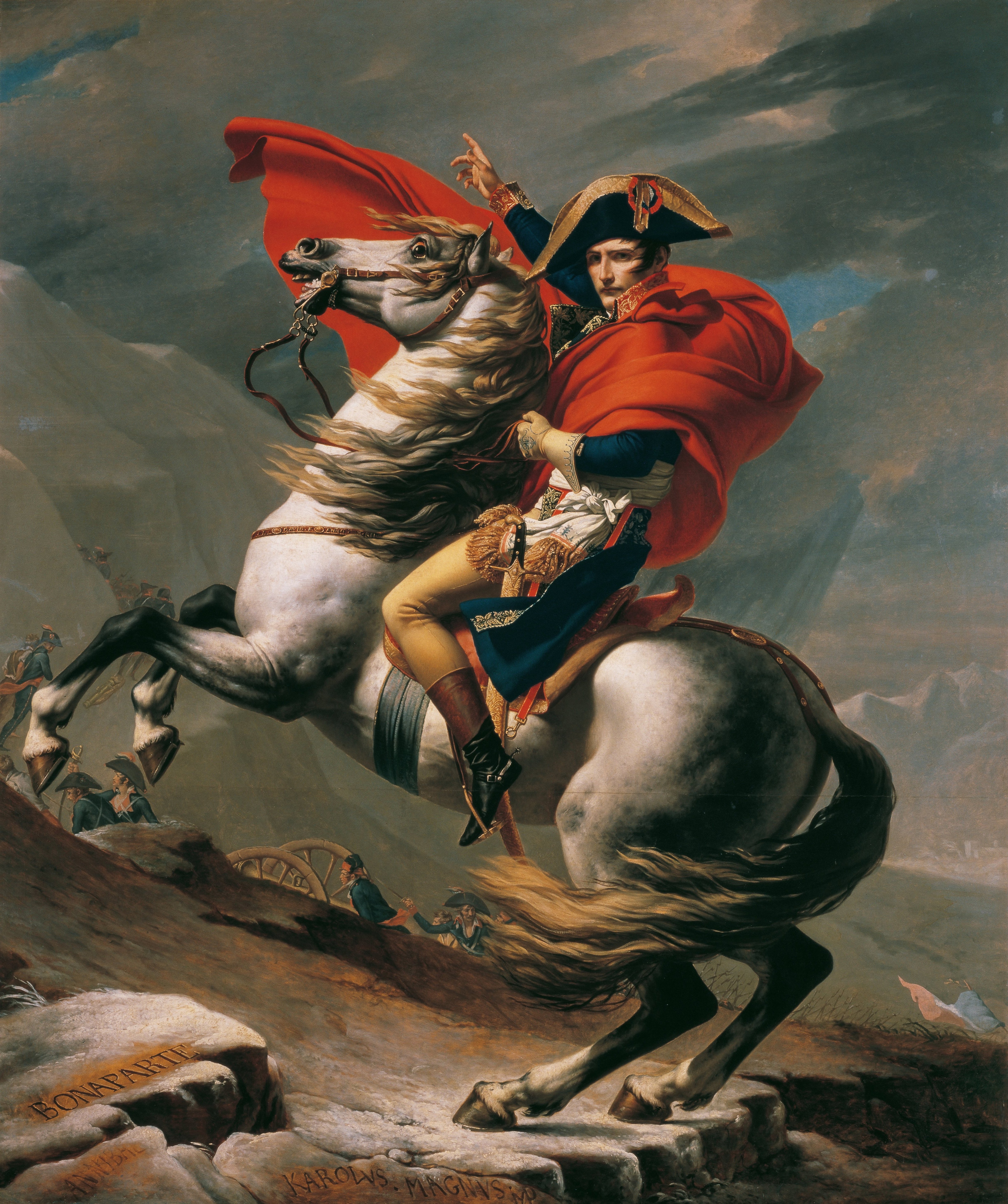
EXALT AND MAGNIFY HIMSELF ABOVE EVERY GOD
France executed its king and demolished its monarchy, which had long persecuted its citizens under the influence of the papacy. The new government, the French Republic, did indeed exalt itself and magnify itself above every god. For the first time, atheism became a dominant influence among all classes and scholars directly trace this to the social and religious upheaval following the French Revolution.
The French Revolution (1789-94) would dramatically transform the power relationship between belief and unbelief in Europe: whereas before atheism had been 'high brow', discussed in the cafes and salons of Paris, henceforth it would set itself down among the people. A strident unbelief became a real political factor in public life, as the anticlerical 'dechristianisation' period following the revolution would demonstrate. The impact of the French Revolution in inspiring people to put the irreligious ideas of the Enlightenment into practice would extend beyond France to other European countries, and to the American colonies …1
The French Revolution took atheism to the masses. The far reaching effects of atheism in the world today can be traced back to when France, the Willful King, exalted himself and magnified himself above every god, speaking against Yahuwah by denying His existence.
DANIEL 11:37
“Neither shall he regard the God of his fathers, nor the desire of women, nor regard any god: for he shall magnify himself above all.”
REGARDS NOT THE GOD OF HIS FATHERS
At the beginning of the French Revolution in 1789, Roman Catholicism was the state religion. The Willful King, however, showed no regard for the “God of his fathers.”
In October 1793, public worship was forbidden and over the next few months all visible signs of Christianity were removed, a policy pursued with particular enthusiasm by revolutionary armies eager to seek revenge on the institution that harboured so many counter-revolutionaries. Church bells were pulled down and melted, ostensibly to help the war effort, crosses were taken from churches and cemeteries, and statues, relics and works of art were seized and sometimes destroyed. … On 23 November 1793, churches were closed, to be converted into warehouses, manufacturing works or even stables. Streets and other public places bearing the names of saints were given new, often Republican-themed names, and time itself was recast to further repudiate France’s Christian past.2
REGARDS NOT ANY GOD
 The Roman Catholic Church has always declared that the sign of her authority is the act of changing the day of worship from Sabbath
to Sunday. The Willful King was well aware of this and went so far as
to create an entire new calendar to distance itself from Christianity.
The calendar of the French Republic had 10-day weeks, so “Sunday” did
not even exist in the Willful King’s new method of time-keeping. Pierre
Sylvain Maréchal, the first one to suggest a change of calendar,
declared: “the calendar of the French Republic . . . must not resemble
in any respect the official annuals of the apostolic and Roman Church.”3
The Roman Catholic Church has always declared that the sign of her authority is the act of changing the day of worship from Sabbath
to Sunday. The Willful King was well aware of this and went so far as
to create an entire new calendar to distance itself from Christianity.
The calendar of the French Republic had 10-day weeks, so “Sunday” did
not even exist in the Willful King’s new method of time-keeping. Pierre
Sylvain Maréchal, the first one to suggest a change of calendar,
declared: “the calendar of the French Republic . . . must not resemble
in any respect the official annuals of the apostolic and Roman Church.”3
“The French calendar reform was an attempt to de-Christianize the calendar, in keeping with the Revolution’s stated goal of promoting Reason as opposed to Religion.”4
France’s complete and total shunning of its Christian heritage proves that it was indeed the Willful King that regarded not the God of his fathers.
France is the only nation in the world concerning which the authentic record survives, that as a nation she lifted her hand in open rebellion against the Author of the universe. Plenty of blasphemers, plenty of infidels, there have been, and still continue to be, in England, Germany, Spain, and elsewhere; but France stands apart in the world’s history as the single state which, by the decree of her Legislative Assembly, pronounced that there was no God, and of which the entire population of the capital, and a vast majority elsewhere, women as well as men, danced and sang with joy in accepting the announcement.5
REGARDS NOT THE DESIRE OF WOMEN
France’s rejection of Christianity led to another act that also identifies it as the Willful King who regarded not “the desire of women.”
Some Bible students have suggested that this phrase refers to celibate Catholic priests. The news headlines alone of recent years disprove any claim to priestly purity. Furthermore, every few years, yet another headline repeats the story of cloistered nuns giving birth, lending credence to the many rumors of baby skeletons being found buried near convents as well as other documented cases of hundreds of skeletons found near homes for unwed mothers run by Catholic nuns. Clearly, Catholic priests do not have a monopoly on sexual purity simply because they have taken vows of celibacy. Therefore, to regard not “the desire of women” could not refer to the Roman Catholic Church.
A clue as to how to interpret this phrase is found in Romans: “Likewise also the men, leaving the natural use of the woman, burned in their lust for one another, men with men committing what is shameful, and receiving in themselves the penalty of their error which was due.” (Romans1:27, NKJV)
Here, again, France meets this identifying characteristic.
Before the French Revolution, sodomy had been a capital crime under royal legislation. The penalty was burning at the stake. … The National Constituent Assembly abolished the law against sodomy when it revised French criminal law in 1791 and got rid of a variety of offenses inspired by religion, including blasphemy; … ‘the Revolutionary and Napoleonic period was a time of relative freedom’ and opened the modern era of legal toleration for homosexuality in Europe. Napoleonic conquests imposed the principles of Napoleon’s Penal Code (including the decriminalization of homosexuality) on many other parts of Europe….6
France became known for its licentiousness. For the first time in a Christian nation, homosexuality was made legal.
It is perhaps not surprising, then, that this liberal democratic revolution also initiated the disestablishment of sexual orthodoxy, permitting greater individual freedom, and extracting the state from the regulation of homosexuality. With the advent of the Napoleonic legal code, sodomy disappeared from criminal law, and as Napoleon swept through Europe evicting the mainstays of the old order, he left new nation-builders in his wake who founded legal systems without the category of sodomy.7
Truly, France as the Willful King regarded not the desire of women.

Daniel 11:38
“But in his estate shall he honour the God of forces: and a god whom his fathers knew not shall he honour with gold, and silver, and with precious stones, and pleasant things.”
HE SHALL HONOR THE GOD OF FORCES
Napoleon’s name has come down through history synonymous with that of Alexander the Great, Hitler, and other power-hungry conquerors. In fact, his very name has been used to designate the military conflicts in which he embroiled France. “The Napoleonic Wars were a series of conflicts fought between France under the leadership of Napoleon Bonaparte and a number of European nations between 1799 and 1815.”8
When a by-stander commented: “We will win because God is on our side,” Napoleon famously and arrogantly declared: “God is on the side of the big battalions.” France, as foretold, honored the “God of forces.”
A GOD HIS FATHERS KNEW NOT
France also famously honored “a god whom his fathers knew not.” Historians have proven that the saints of the Roman Catholic Church are simply Greek and Roman gods, renamed with Christian names. “Since converts from paganism were reluctant to part with their ‘gods’- unless they could find some satisfactory counterpart in Christianity – the gods and goddesses were renamed and called ‘saints’.”9 The “titles” used by the heathen were also transferred to Christianity. The “Queen of Heaven” appellation widely applied to Mary was actually first used centuries earlier for the wicked queen, Semerimus, as well as other heathen goddesses.
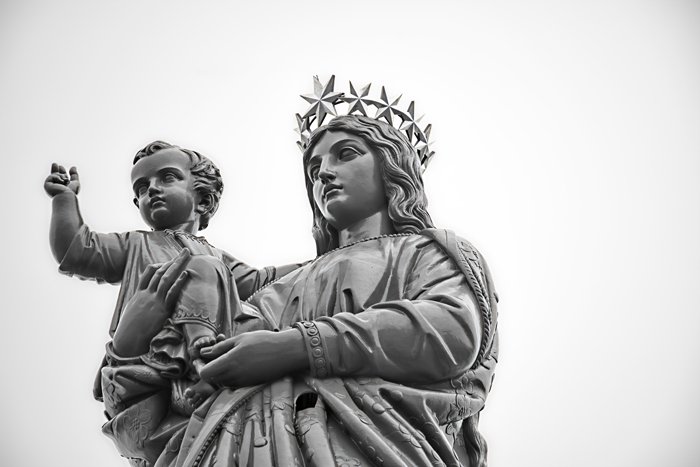
When France rejected Roman Catholicism, it rejected not only Yahuwah, but the Catholic saints/gods that had been known for generations. “The world for the first time heard an assembly of men, born and educated in civilization, and assuming the right to govern one of the finest of the European nations, uplift their united voice to deny the most solemn truth which man’s soul receives, and renounce unanimously the belief and worship of a Deity.”10
Instead, France exalted a goddess. An actress was carried in procession to the Cathedral de Notre-Dame where she was crowned the Goddess of Reason. Notre-Dame itself was renamed the “Temple to the Goddess Reason.”11 In every particular of this verse, France fulfills the description of the Willful King.
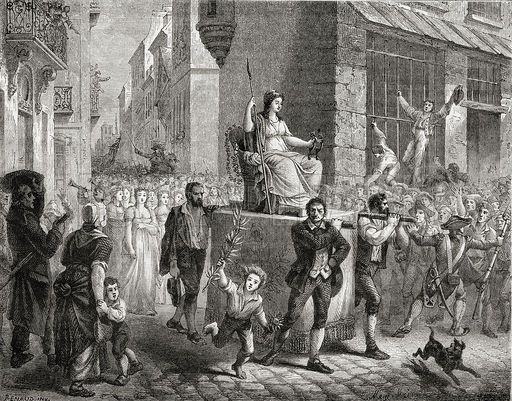
HONORING WITH GOLD, SILVER & PRECIOUS THINGS
Napoleon, like every conquering power before and after, enriched France at the expense of the nations he defeated. The Louvre Museum in Paris is known around the world for its collection of art and cultural artifacts. Following the French Revolution, the government nationalized the Louvre, an old palace, as a place in which to “gather monuments of the sciences and arts.” Two years later, the government opened the Museum Central des Arts. But it was under Napoleon that the Louvre came into it’s own as a collection of gold, silver, precious stones and pleasant things.
1798-1815: The future Emperor Napoleon I "enriches" the collections at the Louvre through spoils acquired during his conquests abroad, and particularly from Italy. The museum is renamed the Musée Napoleon in 1803 and a bust of the emperor is placed over the entrance. In 1806, the Emperor's architects Percier and Fontaine build a small "Arc de Triomphe" on the central pavilion of the Tuileries in celebration of France's military conquests. The arch originally includes four antique bronze horses that had been taken from St Mark's Basilica in Italy; these are restored to Italy in 1815 when the First Empire falls. During this period, the Louvre is also significantly expanded to include many of the wings still present today, including the Cour Carré and the Grande Galerie.12
The French Revolution virtually bankrupted France. However, “the National Assembly decreed that the Louvre should be used as a museum to display the nation's masterpieces.”13 The significance of this is found in the fact that one of the primary contributing factors of the French Revolution was resentment of the Roman Catholic Church and it’s wealth, which “formed a visible reminder of the Church’s dominance in French society.”14
Opposition to the Roman Catholic Church was integral among the causes of the French Revolution, and this anti-clericalism solidified into official government policy in 1792 after the First French Republic was declared. Most of the dechristianisation of France was motivated by political and economic concerns, but philosophical alternatives to the Church developed gradually as well.15
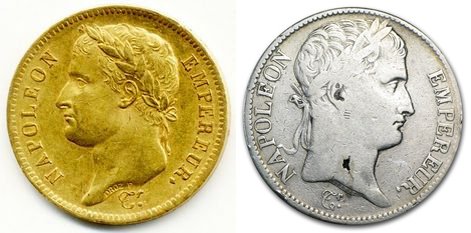 As the revolutionaries gained power, they nationalized all Church property.
As the revolutionaries gained power, they nationalized all Church property.
On 2 November 1789, France’s new National Assembly, known as the Constituent Assembly, passed a decree that placed all Church property ‘at the disposition of the nation’. Talleyrand, the bishop of Autun and one of the few clerics to support the measure, argued that all Church property rightfully belonged to the nation and that its return, by helping to bring about a better society, should therefore be viewed as a ‘religious act’.16
It was a pendulum swing away from Christianity that began the “de-Christianization of France.” This backlash culminated, as previously stated, in the suppression of Christianity and the crowning of the Goddess of Reason. Further, a “Cult of Reason” was briefly established. “Its goal was the perfection of mankind through the attainment of Truth and Liberty, and its guiding principle to this goal was the exercise of the human faculty of Reason.”17
When the Louvre first opened, the artwork was primarily items that had been confiscated from the Catholic Church and the royal family or stolen from aristocratic families that had fled France. Napoleon’s conquests enriched France’s coffers as he raped the European continent of its treasures. The museum and the principles of France had a symbiotic relationship, each benefiting the other. The wealth of the nation’s former oppressors, now on display before the public, who collectively “owned” it, underscored France’s arrogant belief in her superiority under the reign of Reason, as compared to the poverty suffered by the masses when ruled by Catholic monarchs.
 |
|
Louvre. By King of Hearts - Own work, CC BY-SA 3.0, https://commons.wikimedia.org/w/index.php?curid=10714459 |
Thus, the “gold, and silver, and precious stones, and pleasant things” was used to promote and promulgate the Revolutionary concepts of humanism and atheism. It was a propaganda campaign to convince the population that Reason was superior to the Christian God.
DANIEL 11:39
“Thus shall he do in the most strong holds with a strange god, whom he shall acknowledge and increase with glory: and he shall cause them to rule over many, and shall divide the land for gain.”
DIVIDING THE LAND FOR GAIN
The word “thus” means: “In the way just indicated.” So this verse summarizes the deeds of the Willful King. But then it goes on to add one more identifying characteristic: the Willful King shall “divide the land for gain. This is exactly what happened in France. The French Revolution had a devastating impact on the economy. Inflation skyrocketed. Silverware was melted down to mint coins. A number of measures were tried to stabilize the economy with varying degrees of success. This verse foretells in particular the sale of confiscated land:
The Assembly aimed its economic policies at freeing capitalistic enterprise. It assured payment to middle-class bondholders of government issues and financed this policy by sale of lands, confiscated from the church and from nobles who had fled the country. It sold to middle-class speculators much of this new public land; very little was ever acquired by peasants.18
In this, as in every other particular of the prophecy, France is proven to be the Willful King.
DANIEL 11:40
“And at the time of the end shall the king of the south push at him [the Willful King]: and the king of the north shall come against him [the Willful King] like a whirlwind, with chariots, and with horsemen, and with many ships; and he [the King of the North] shall enter into the countries, and shall overflow and pass over.”
PUSHING AT THE WILLFUL KING
Verse 40 reveals both the King of the North and the King of the South ganging up on a third player: the Willful King described in the preceding verses. This confirms the identity of France as the Willful King. The King of the South (Egypt) “pushed at” France when the ruling party disrupted Egypt’s trade with France. Historians point to this disruption of trade as a primary motivating factor behind France’s military response. “One of the triggers of the French invasion was the virtual destruction of French trade with Egypt by the 1790s.”19 At the very time prophesied, in 1798, Napoleon invaded Egypt.
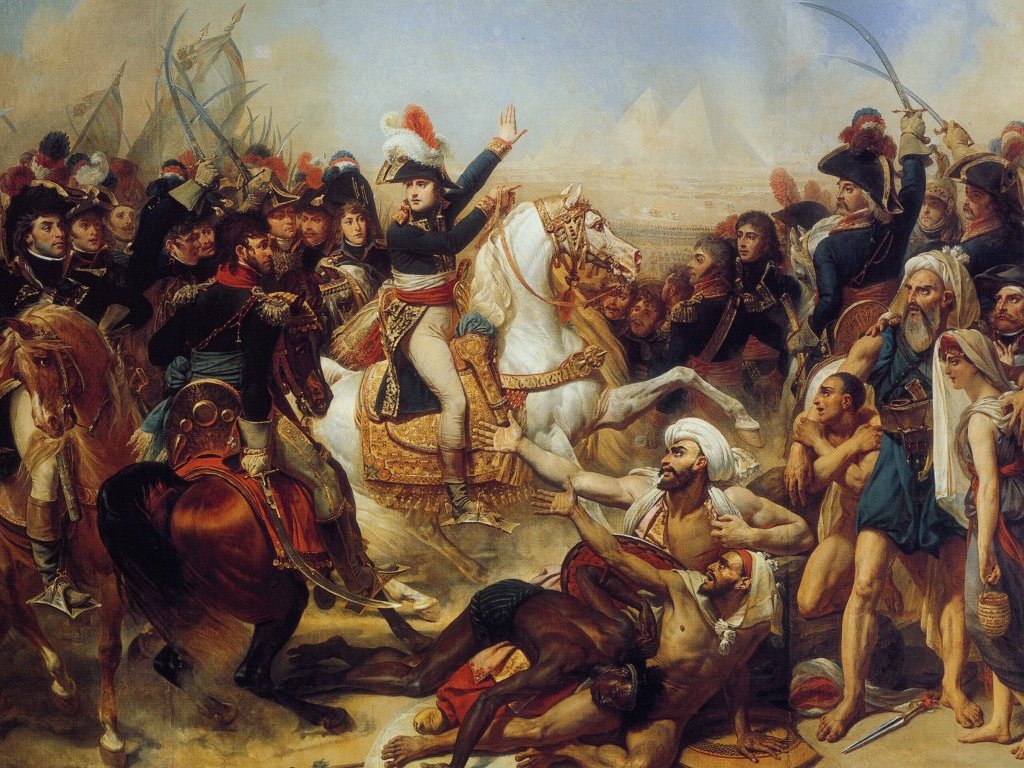
THE KING OF THE NORTH RESPONDS LIKE A WHIRLWIND
France’s use of force to respond to Egypt’s “pushing” had very far-reaching, unintended consequences. Egypt at the time was ruled by the Mamluks which had rebelled against overrule by the Ottoman Empire. France had assumed the Ottoman Empire would tolerate French presence in what had become a thorn in the side of the Ottoman Empire.
France had traditionally been allied with the Ottoman Empire, and at least for the moment there was no intention of disrupting this. The French plan relied heavily on the Ottomans staying at least neutral, counting on their hostility to the Mamluks … overweighing their anger at the French invasion of what was still officially an Ottoman province.20
This military action by the Willful King/France in turn, led to the King of the North (the Ottoman Empire) entering into the countries just as Daniel had foretold over 2,000 years before. Ultimately, in a complicated chain of events, it was also responsible in part for the Armenian Genocide21 (1915-1918). Little is known of this atrocity today, but various sources claim anywhere from 275,000 to 750,000 Assyrian Christians lost their lives due to “ethnic cleansing” by the Ottoman Empire. Nor was this the only genocide perpetrated by the King of the North. The Willful King’s invasion of Egypt can be established as the starting point for tensions that culminated in both the Armenian Genocide22 (1915-1918) and the Greek Genocide23 (1914-1923). Up to 3 million Christians lost their lives in these two horrific crimes against humanity. (To read an explanation of the King of the North’s actions, click here.)
FRANCE IS THE WILLFUL KING!
There is not the slightest doubt that France fits every particular given in prophecy to identify the Willful King. Divine foresight gave the information to Daniel to record and preserve it for the final generation.
This understanding is of tremendous significance to everyone living today, because the final verses of Daniel 11, properly understood, reveal that the close of probation is very, very soon. Possibly, just months away for the elect, who have been given much light.
1 http://www.mmfase.com/18th-century.html
2 http://www.historytoday.com/
gemma-betros/french-revolution-and-catholic-church
, emphasis supplied.
3 George B. Andrews, “Making the Revolutionary Calendar,” American Historical Review, 36, (1931), p. 525.
4 http://4angelspublications.com/articles/French_Calendar_
Reform.pdf
5 Blackwood’s Magazine, November 1870, emphasis supplied.
6 https://en.wikipedia.org/wiki/
Jean_Jacques_R%C3%A9gis_de_Cambac%C3%A9r%C3%A8s, emphasis supplied.
7 http://law.jrank.org/pages/1336/Homosexuality-Crime-Modernity.html, emphasis supplied.
8 http://www.historyofwar.org/
articles/wars_napoleonic.html
9 Ralph Edward Woodrow, Babylon Mystery Religion: Ancient & Modern.
10 Sir Walter Scott, Life of Napoleon, Vol. 1, p. 124.
11 http://www.napoleon.org/en/magazine/places/cathedral-of-notre-dame-in-paris/
12 http://goparis.about.com/od/parismuseums/a/louvre-museum-history.htm, emphasis supplied.
13 https://en.wikipedia.org/wiki/Louvre
14 http://www.historytoday.com/
gemma-betros/french-revolution-and-catholic-church
15 https://en.wikipedia.org/wiki/Cult_of_Reason, emphasis supplied.
16 Ibid.
17 Ibid.
18 http://history-world.org/french_revolution1.htm
19 http://www.historyofwar.org/
articles/wars_french_egypt.html
20 http://www.historyofwar.org/
articles/wars_french_egypt.
html
21 http://i-cias.com/e.o/
assyrian_gc.htm
22 http://study.com/academy/lesson/the-1915-armenian-
genocide-history-causes.html
23 https://www.causes.com/causes/
539208-demand/updates/596106-the-greek-pontian-genocide-by-
turks-19-may-1919









